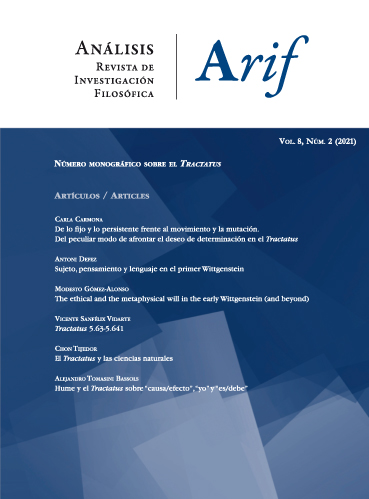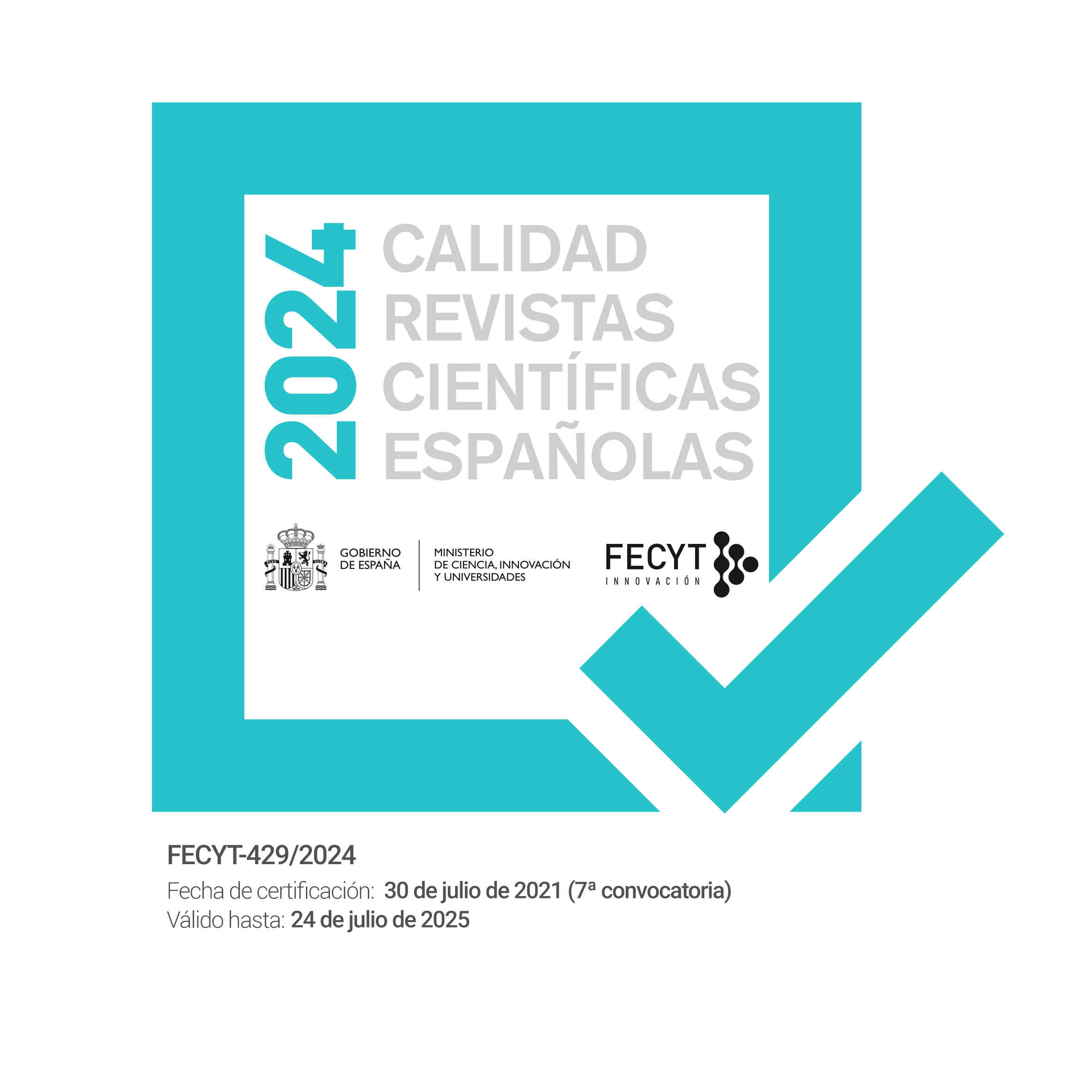The Ethical and the Metaphysical Will in the Early Wittgenstein (and Beyond)
DOI:
https://doi.org/10.26754/ojs_arif/arif.202126314Resumen
In the Notebooks 1914-1916, Wittgenstein engages himself in a dialogue with Schopenhauer’s project —one that Wittgenstein makes his own— of substituting an immanent metaphysics of human experience for the transcendent metaphysics discredited by Kant’s critique, and thus for finding a path that would be able both of capturing the reality of human agency and of staying away from the kind of self-alienation that appears to be the necessary consequence of philosophical reflection. Wittgenstein’s reflections on the ethical and the metaphysical will are instrumental to bring this project to successful completion. However, I will go well beyond Wittgenstein’s early work in order to elucidate what strikes me as the solution provided by the late Wittgenstein (mainly, in On Certainty) to two problems that the Notebooks and the Tractatus left unanswered. On the one hand, there is the question about whether the agreement between agency and passivity is possible—namely, about how to come to see the friction of the world not only as something that is, but rather as something that ought to be. On the other, there is the problem of how to make of ethical subjectivity and metaphysical subjectivity two constitutively co-related aspects of the same transcendental subjectivity.Descargas
Descargas
Publicado
Número
Sección
Licencia
Derechos de autor 2021 Modesto Gómez Alonso

Esta obra está bajo una licencia internacional Creative Commons Atribución-NoComercial-SinDerivadas 4.0.
Los autores que publican en esta revista están de acuerdo con los siguientes términos: los autores conservan los derechos de autor y garantizan a la revista el derecho de ser la primera publicación del trabajo al igual que licenciado bajo una Creative Commons Reconocimiento-No Comercial-Sin Obra Derivada 4.0 (CC BY-NC-ND) que permite a otros compartir el trabajo con un reconocimiento de la autoría del trabajo y la publicación inicial en esta revista. Los autores pueden establecer por separado acuerdos adicionales para la distribución no exclusiva de la versión de la obra publicada en la revista (por ejemplo, situarlo en un repositorio institucional o publicarlo en un libro), con un reconocimiento de su publicación inicial en esta revista.






